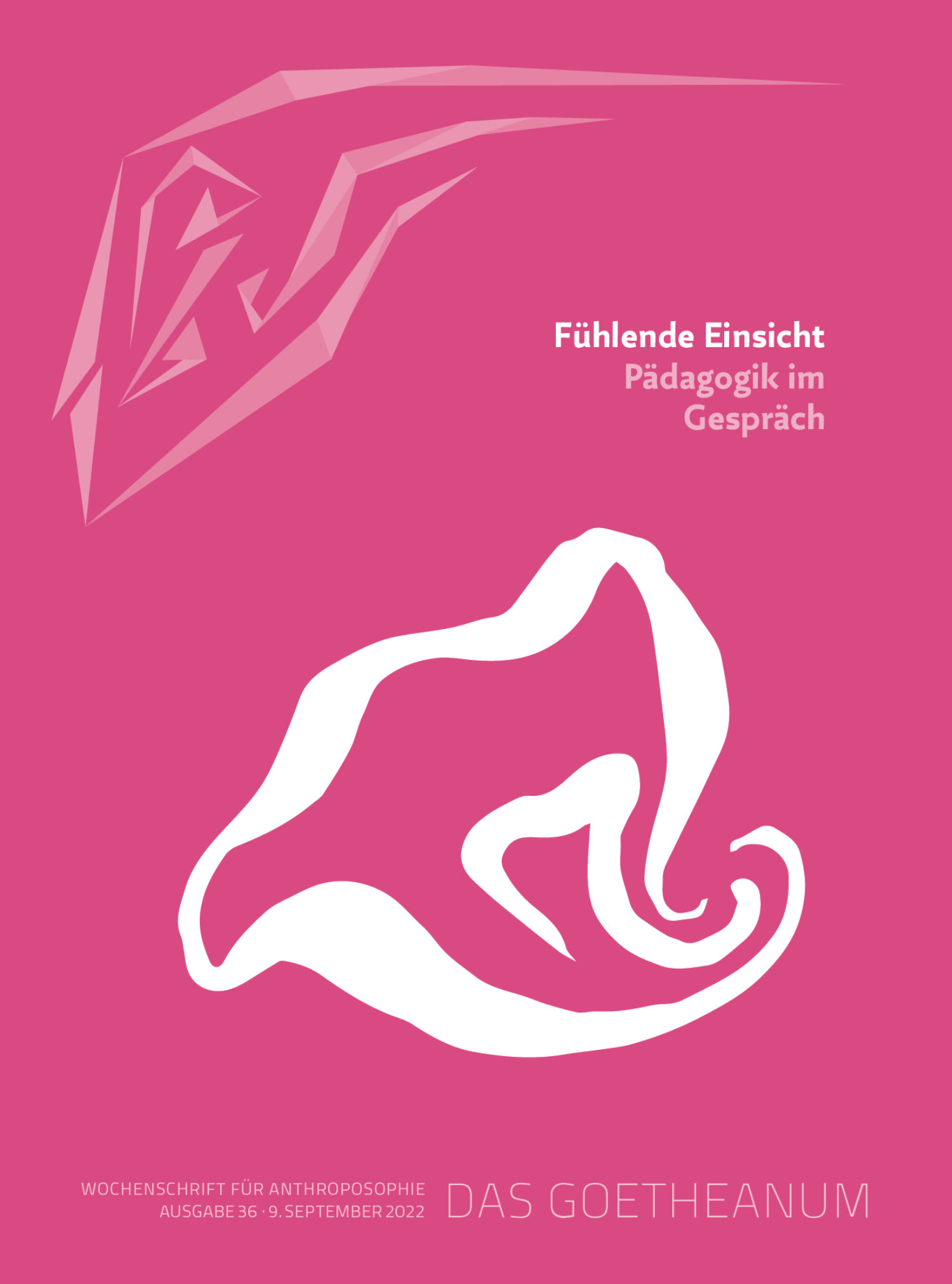Love Is Always Practical
Constanza Kaliks and Philipp Reubke head the Pedagogical Section at the Goetheanum. In the series ‹Anthroposophy – an Extension of Science?› they spoke about pedagogy as enabling what has never been seen before. It is a balancing act to mediate between the world that is and the still unknown future of the child.
Rudolf Steiner’s approach, from which the Waldorf school movement emerged, is a pedagogy oriented towards knowledge of the human being. The struggle towards this is the starting point – curricular decisions and methodological and didactic guidelines follow this knowledge.1 Knowledge of human nature is not outside the actor, who would then only be an executor, but rather lives in those who are pedagogically responsible. Otherwise, teaching would be based on normative instructions, which are not primarily anchored in the reality of the respective child and young person. Economic interests or scientific paradigms that are introduced into human sciences are then normative and generalizing and particularly formative. The individual child, the singular young person, is seen as an example of the determining general public standing above them.
Criticism of such a reductionist worldview and its consequences is asserted worldwide in the pedagogical field today, as well as in academic discourse; however, it is rarely taken into account in practical implementations, which are predominantly based on the economic principles determining educational systems.
The problem identified by Rudolf Steiner early on has increased dramatically in intensity and distribution and is currently being articulated from many sides. On January 29, 2022, the centenarian Edgar Morin spoke about the necessity of human knowledge in an interview with the Brazilian magazine ‹Revista Prosa e Arte›. Morin, a French philosopher and sociologist who has developed essential perspectives on the education of the 21st century, turned against the scientific reductionism of the natural sciences in its paradigmatic meaning as early as the 1970s: «The tragic thing about our current knowledge system is that it divides knowledge so much that we cannot ask ourselves these questions. If we ask, ‹What is a human?› we will not get answers because the different answers are scattered. And that’s precisely what I call complex thinking, a thinking that brings together individual parts of knowledge. […]
This excerpt comes from an article originally published in the (online exclusive) English Edition of the weekly Newsletter ‹Das Goetheanum›. You can read the full article on the website of 'Das Goetheanum'.


